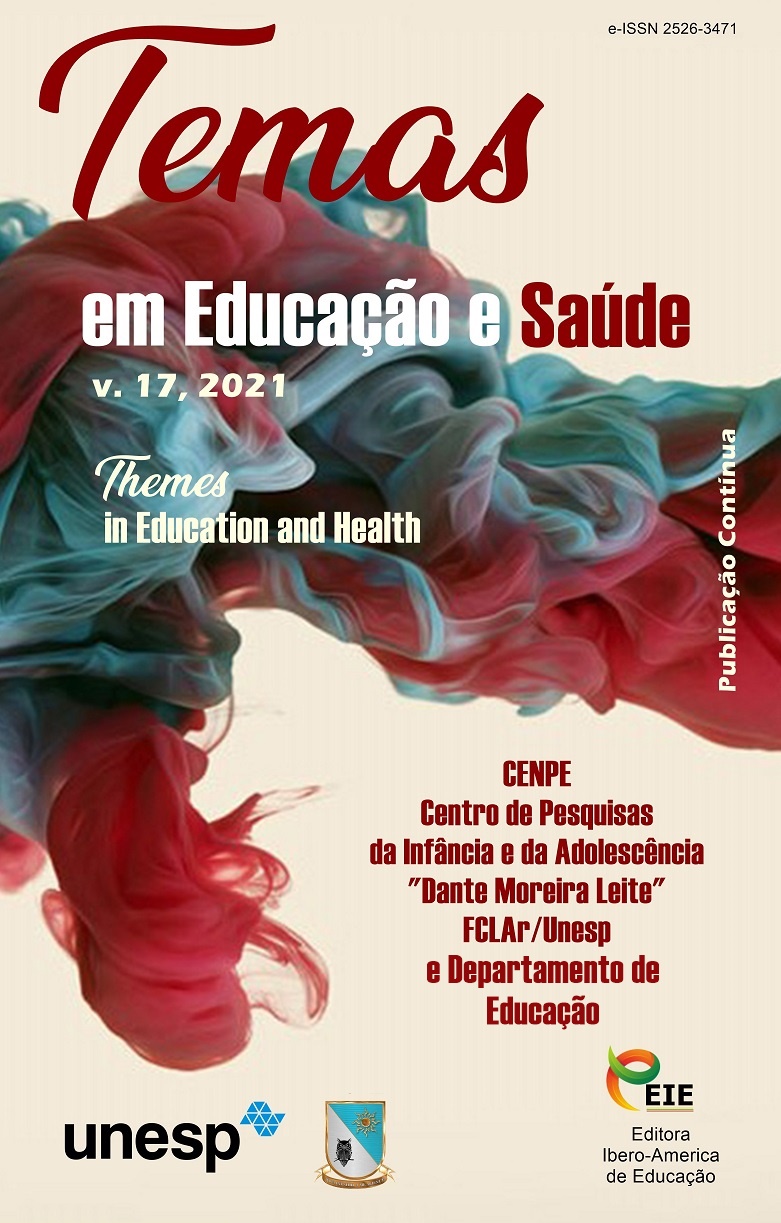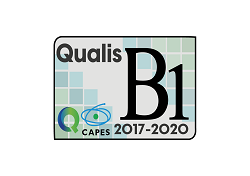Intervenções educativas no contexto da Hipertensão Arterial Sistêmica: uma revisão sistemática
DOI :
https://doi.org/10.26673/tes.v17i00.14729Mots-clés :
Hipertensão arterial, Educação em saúde, Revisão sistemáticaRésumé
A hipertensão arterial sistêmica é uma das maiores causas de morbidade no mundo, considerada um dos principais fatores de risco para desenvolvimento de doenças cardiovasculares. O presente trabalho tem como objetivo revisar sistematicamente as intervenções educativas desenvolvidas em serviços de saúde e na comunidade e sua atuação na prevenção e controle da hipertensão. Para tal, realizou-se uma revisão sistemática nas bases de dados LILACS, MEDLINE e SciELO, considerando trabalhos sem restrição de tempo e idioma. Os trabalhos que apresentaram resultados mais satisfatórios utilizaram estratégias mais interativas com uso de compartilhamento de experiências, participação ativa e educação baseada no modelo de assistência e parceria. Intervenções educacionais podem ampliar o conhecimento sobre a hipertensão arterial sistêmica, ajudar na adesão ao tratamento, proporcionar melhorias ligadas às condições clínicas do paciente e reduzir os níveis de pressão arterial.
Téléchargements
Références
BALCAZAR, H. G. et al. A randomized community intervention to improve hypertension control among mexican americans: using the promotoras de salud community outreach model. Journal of Health Care for the Poor and Underserved, v. 20, n. 4, p. 1079–1094, 2009.
BORGES, J. P.; LESSA, M. A. Mechanisms involved in exercise-induced cardioprotection: A systematic review. Arquivos Brasileiros de Cardiologia, v. 105, n. 1, p. 71–81, 2015.
CARVALHO, M. V. et al. The influence of hypertension on quality of life. Arquivos Brasileiros de Cardiologia, v. 100, n. 2, p. 164–174, 2013.
CRABTREE, K. et al. African American men’s preferences for a community-based diabetes management program. The diabetes educator. 41(1): p. 118-126, 2015.
DOWNS, S.H.; BLACK, N. The feasibility of creating a checklist for the assessment of the methodological quality both of randomised and non-randomised studies of health care interventions. Journal of Epidemiology Community Health. 52(6): p. 377-84, 1998.
FERRARA, A. L. et al. Lifestyle educational program strongly increases compliance to nonpharmacologic intervention in hypertensive patients: a 2-year follow-up study. The Journal of clinical hypertension. vol. 14. Oct. 2012.
ISO, H. et al. Community-Based Education Classes for Hypertension Control. Journal of the American Heart Association, vol, 27. Apr. 1996.
JAFAR, T. H. et al. Community based lifestyle intervention for blood pressure reduction in children and young adults in developing country: Cluster randomised controlled trial. BMJ (Online), v. 340, n. 7762, p. 1–7, 2010.
KASPER, D. L. et al. Medicina interna de Harrison. 19 ed. Porto Alegre: AMGH Editora, 2017.
KISIOGLU, A. N. et al. Improving Control of High Blood Pressure among Middle-aged Turkish Women of Low Socio-economic Status through Public Health Training. Croatian Medical Journal, vol.45. 2004.
LU, C. H. et al. Community-based interventions in hypertensive patients: A comparison of three health education strategies. BMC Public Health, v. 15, n. 1, p. 1–9, 2015.
MACHADO, J. C. et al. Adherence to non-pharmacological treatment: Analysis of the impact of three health educational and nutritional strategies in hypertensive patients. Revista de Nutricao, v. 29, n. 1, p. 11–22, 2016.
MARTÍN, C. R. et al. Eficacia de una intervención educativa grupal sobre cambios en los estilos de vida en hipertensos en atención primaria: un ensayo clínico aleatorio. Journal of Agricultural and Food Chemistry, v. 1, n. 2, p. 193, 1953.
MENEGAZ, A. M. et al. Intervenções educativas em serviços de saúde e saúde bucal: revisão sistemática. Revista de Saúde Pública, vol.52:52. 2018.
MOHAMMADI, E. et al. Evaluation of “partnership care model” in the control of hypertension. International Journal of Nursing Practice, v. 12, n. 3, p. 153–159, 2006.
MORI, A. L. P. M. et al. Pharmaceutic guidance to hypertensive patients at USP University Hospital: Effect on adherence to treatment. Brazilian Journal of Pharmaceutical Sciences, v. 46, n. 2, p. 353–362, 2010.
NGUYEN, H. L. et al. Culturally adaptive storytelling intervention versus didactic intervention to improve hypertension control in Vietnam- 12 month follow up results: A cluster randomized controlled feasibility trial. PLoS ONE, v. 13, n. 12, p. 1–13, 2018.
OLIVEIRA, T. L. et al. Eficácia da educação em saúde no tratamento não medicamentoso da hipertensão arterial. ACTA Paulista de Enfermagem, v. 26, n. 2, p. 179–184, 2013.
ORGANIZAÇÃO PAN-AMERICANA DA SAÚDE; ORGANIZAÇÃO MUNDIAL DE SAÚDE. Dia mundial da hipertensão. OPAS/OMS, 2016. Disponível em: https://www.paho.org/bireme/index.php?option=com_content&view=article&id=330:dia-mundial-da-hipertensao-2016&Itemid=183&lang=pt. Acesso em: 20 mai. 2020.
SCALA, L. C.; MAGALHÃES, L. B.; MACHADO, A. Epidemiologia da hipertensão arterial sistêmica. In: Moreira SM, Paola AV; Sociedade Brasileira de Cardiologia. Livro Texto da Sociedade Brasileira de Cardiologia. 2ª. ed. São Paulo: Manole; 2015.
SMITH, E. D.; MERRITT, S. L.; PATEL, M. K. Church-based education: An outreach program for African Americans with hypertension. Ethnicity and Health, v. 2, n. 3, p. 243–253, 1997.
SOCIEDADE BRASILEIRA DE CARDIOLOGIA. 7a Diretriz Brasileira De Hipertensão Arterial Sistêmica. Arquivos Brasileiros de Cardiologia, v. 107, p. 5, 2016.
Téléchargements
Publiée
Comment citer
Numéro
Rubrique
Licence
Os manuscritos aceitos e publicados são de propriedade da Temas em Educação e Saúde. Os artigos publicados e as referências citadas na Temas em Educação e Saúde são de inteira responsabilidade de seus autores. É vedada a tradução para outro idioma sem a autorização escrita do Editor ouvida a Comissão Editorial.







